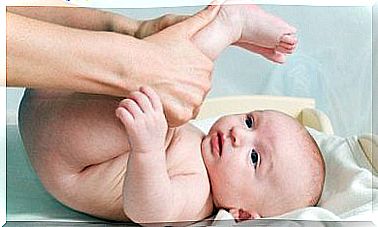Advice To Live Happily During The Period Of Breastfeeding

In the midst of so many emotions and tasks, it is necessary to leave some space to live happily during the period of breastfeeding.
In fact, breastfeeding is so important that you start it when the baby is just a few minutes old.
It has two functions: the first is to give the baby an early connection my mother, and to test the baby’s sucking reflex. It is also important for the baby to absorb and digest the essential nutrients that the first milk, or colostrum, contains.
Especially for new mothers, this stage can lead to some doubts. So, in order for you to live happily during the period of breastfeeding, which you and your little baby deserve, here are some important recommendations.
Advice to live happily during the period of breastfeeding
Do not feel doubt or shame
Breastfeeding is a completely natural and innate process. Think of animals that are mammals, just like us. They do not have the ability to question why they do, but they are still perfectly capable of feeding their babies.
Do not let yourself be intimidated by those who say that it should not be done in public spaces or that you should “hide” that you are breastfeeding. There is no greater fallacy than this. You should always feel you have the right to breastfeed your baby whenever necessary.

2. Find the correct position
In the beginning, it is normal that you do not feel comfortable with the classic position of breastfeeding your baby. The reality is that there are many positions you can use. The choice will be based solely on your well-being, as well as your baby’s.
A bad posture can cause poor milk production and irritation of the nipple, due to poor suction power that the little one will use when he or she is uncomfortable.
However, it is not a factor you have to worry too much about. Over time, you will discover which, of the many positions that suit both you and your baby best, and it will solve the problem.
3. What should you eat?
Through breast milk, the baby gets the nutrients that the mother has in her body. Of course, these come from her diet. Therefore, it is advisable to refrain from unhealthy habits. This means that one must continue as in pregnancy, and in the same way eat a complete and varied diet.
According to specialists, the essential nutrients, at this stage, are calcium, iron, carbohydrates (which provide energy), proteins and healthy fats. Also, do not forget to be hydrated at all times.
4. Is it time to stop?
There are mothers who feel uncomfortable when breastfeeding for too long. Their concern is, on the one hand, not being able to produce enough milk to satisfy the needs of their child. On the other hand, they are worried that if they do not stop at a certain time, it may cause harm to the baby.
According to the first, it is important that you start offering your baby other foods, after the age of 6 months, so that you create a varied diet. Your milk production should not be a problem. The body’s regulatory mechanism will take care of this.
According to the second, there is no risk of prolonged breastfeeding. It can extend over 5, 6 and even 7 years if both the mother and the baby want it.
However, there is often a great deal of social pressure around this. Again, those who make the decision are you and your child. Criticism is actually the lack of information in society.

5. What can go wrong during breastfeeding?
As in any new process that we encounter, we worry about things that can cause problems. Most mothers are able to breastfeed successfully, including first-time mothers.
Of course, there can be problems. The most common are inflammation or pain in the nipples, a condition called mastitis.
However, none of them are serious. You can overcome them just fine with someone’s care, and, of course, with the help of your trusting doctor.
Finally, remember that you are not facing this process alone. Your partner, your family and your friends are there to help you and give you advice. Keeping your fears at bay is the last thing you should do. Express them and stay calm.
In any case, if you still need to talk to specialists on the subject – in addition to your doctor, of course – there are associations and groups dedicated to advising mothers with doubts and problems so that they can live happily during the period of breastfeeding.









